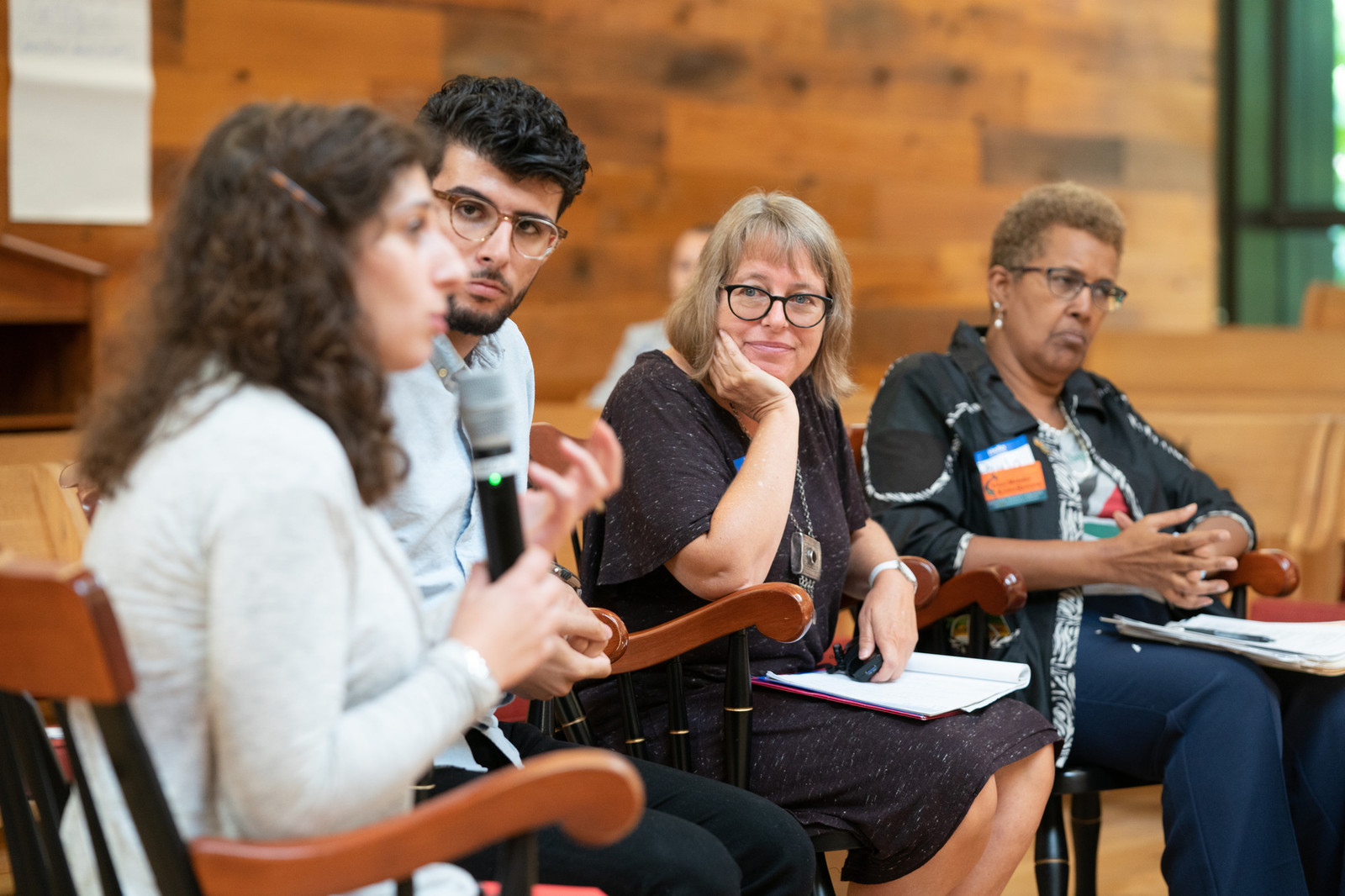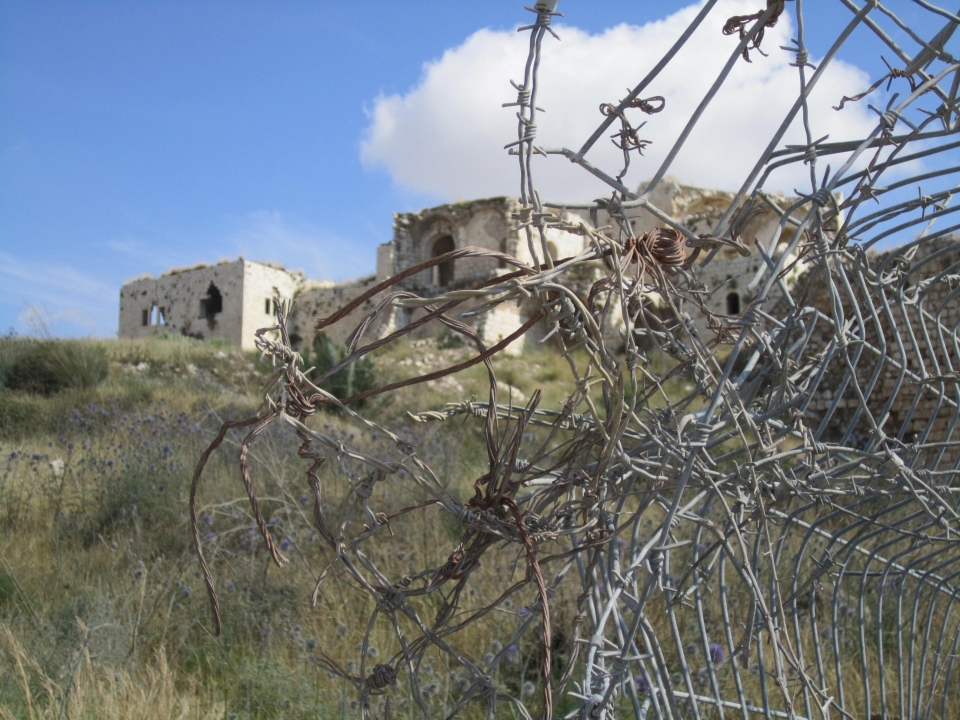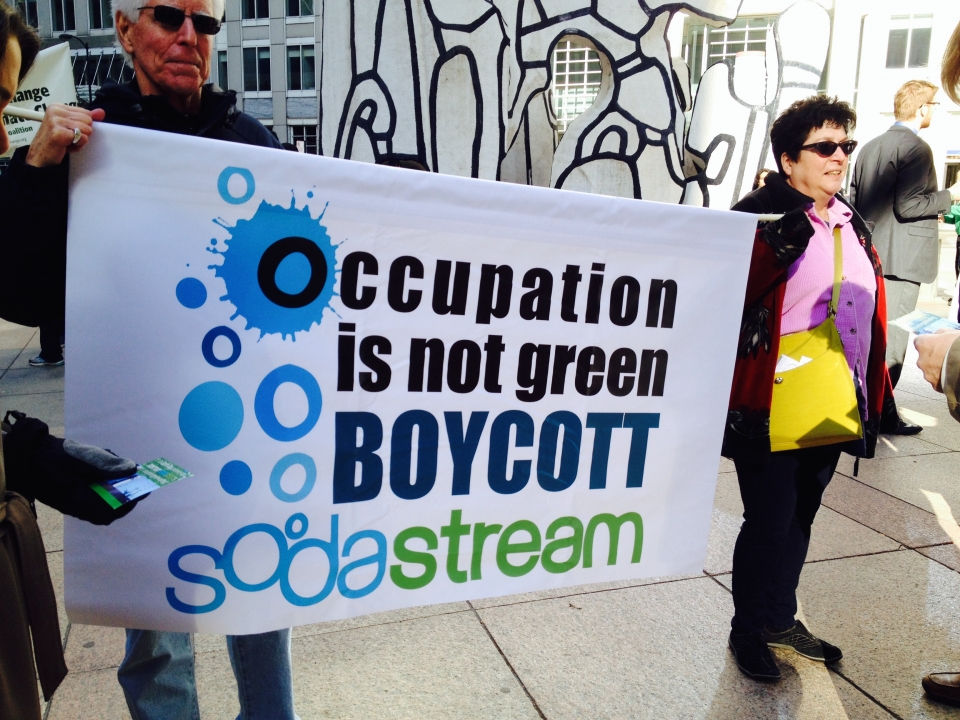
AFSC
On January 30 I was asked by the Palestinian-American community in Chicago to join them at a press conference to respond to the news of a new “Middle East plan” put forward by the Trump administration.
The invitation led me to reflect on my role as an ally in the work for Palestinian rights. I’ve had a long history working on this issue, dating back into the early 1980s.
I’ve watched as mountain tops in the West Bank have turned into Israeli settlement colonies surrounded by barbed wire and electronic surveillance. Water stolen from Palestinian aquifers fills swimming pools and irrigates green lawns in these settlements. New roads are built to bypass Palestinian neighborhoods and link Israeli settlers to their jobs inside Israel.

I’ve watched as Palestinian communities are attacked by Israeli settler violence. I’ve seen an entire Palestinian neighborhood’s tires slashed and car windows smashed during the night by Israeli settlers. Settlers have burned olive trees and attacked farmers in their fields. Palestinians are attacked by Israeli settlers on their way to worship, work or school. Settlers have kidnapped children, and even killed Palestinians. All with impunity.
I’ve watched as Israel has built walls and fences around Palestinian communities, sealing off people from their extended families, their jobs, their agricultural lands, their houses of worship.
During decades of disenfranchisement, Palestinians were not passive, they resisted. And so have we, Palestinians and their allies here in the United States.
We documented human rights violations by Israeli settlers and the army and appealed to international courts and governments.
We advocated with members of the U.S. Congress to pass legislation that defends Palestinian rights, including the rights of children tried in Israeli military courts.
We organized boycotts, including persuading celebrities to cancel performances and consumers to check when “made in Israel” actually is “made in an Israeli settlement.”
We divested from companies profiting from the occupation, including Caterpillar that provides bulldozers to the Israeli army that uses them to destroy homes, trees, and Palestinian property, expanding Israeli control over all of historic Palestine.

We made and showed films about Palestine, telling the stories of Palestinians in Bi’lin who regularly protest the separation wall built in their village, the stories of refugees in Gaza who love to surf and fish, the stories of Palestinians in Beit Sahour who hid cows during a tax protest during the first Palestinian uprising, and the stories of Palestinians in Jerusalem who daily climb over walls to reach their schools.
We helped popularize and uplift Palestinian culture – from fashion items like the Palestinian keffiyeh scarf, to food staples like olive oil and hummus, to music and dance rhythms that blend into hip hop, jazz, and classical compositions.
We created and supported alternative information sources, including independent websites that regularly provide news and analysis unavailable in the mainstream media.
We built and supported institutions to bring Palestinian voices to mainstream media outlets, and a legal organization to bolster the Palestine solidarity movement by challenging efforts to threaten, harass and legally bully activists into silence and inaction.
We sent people on delegations to Palestine to witness first-hand the impact of military occupation and build solidarity with communities living without rights and protection from the Israeli army and settler violence.
We organized on college campuses, in church assemblies, and in professional associations, passing resolutions and shifting the discourse on Palestine.
We raised funds to sustain hospitals, schools, clinics, art centers, libraries, and institutions that help Palestinians remain on their land.
While we may be tired from decades of work, we will not stop our resistance.
Palestinians living in the United States have allies who know their quest for freedom is critical to our own liberation.
Our tax money and our elected leaders finance and embrace racism and continued settler colonialism. This must be challenged, not just by Palestinian Americans, but by all of us who believe that the vision set forth by this new plan is a recipe for sustained apartheid, injustice, and violence.
I hope that elected officials will recognize and speak out against the dangerous path Israel pursues to annex settlements, expand its control over the Jordan Valley, and maintain a blockade on Gaza that collectively punishes two million Palestinians.
The Trump plan endorses apartheid, not peace and prosperity for all.
Now more than ever, is the time to support ending all military aid to Israel and pursue a real plan for peace that embraces equality, freedom, and justice for all.